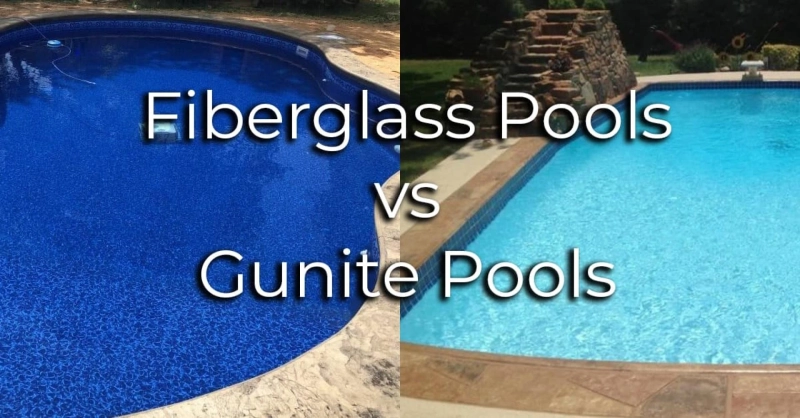Swimming pools are a popular addition to many homes, providing a perfect spot for relaxation, recreation, and exercise. If you're planning to install a pool, you might be wondering which material to choose. Two of the most popular options are gunite and fiberglass, each with its own set of advantages and disadvantages. In this article, we'll break down the differences between gunite and fiberglass pools, helping you make an informed decision.
What is a Gunite Pool?
A gunite pool is a type of in-ground swimming pool that's constructed by spraying a mixture of concrete and sand through a hose onto a framework of steel reinforcing rods. Once the concrete dries and sets, it creates a strong, durable, and long-lasting pool structure. Gunite pools are highly customizable, allowing you to create any shape or size you desire. You can also add features like waterfalls, fountains, and other water features to enhance your pool's aesthetics.
What is a Fiberglass Pool?
A fiberglass pool is a pre-fabricated pool made from fiberglass-reinforced plastic. The pool arrives in one piece, ready to be installed in your backyard. Because the pool is pre-made, the size and shape options are more limited than with gunite pools. However, fiberglass pools are generally more affordable than gunite pools and require less maintenance.
Cost
One of the biggest differences between gunite and fiberglass pools is the cost. Gunite pools tend to be more expensive than fiberglass pools because of the extensive construction process involved. With gunite pools, you'll need to pay for materials, labor, and additional features like tiling, coping, and decking. On the other hand, fiberglass pools are less expensive because they're pre-made and require less labor and materials to install.
Maintenance
When it comes to maintenance, fiberglass pools have a clear advantage. The surface of fiberglass pools is non-porous, which means that algae and bacteria have a harder time sticking to it. This results in less cleaning, fewer chemicals, and lower maintenance costs overall. Gunite pools, on the other hand, are porous and require regular brushing and vacuuming to prevent algae and bacteria buildup.
Durability
Both gunite and fiberglass pools are durable, but gunite pools tend to last longer. Because gunite pools are made from concrete, they can withstand extreme weather conditions and are less prone to cracking or damage from ground movements. Fiberglass pools, on the other hand, can crack or fade over time due to exposure to sunlight and weather.
Conclusion
Choosing between a gunite and fiberglass pool ultimately comes down to your budget, lifestyle, and personal preferences. Gunite pools offer unlimited customization options and long-lasting durability, but come with a higher price tag and more maintenance. Fiberglass pools, on the other hand, are more affordable, require less maintenance, and come in a range of pre-made shapes and sizes. Whichever you choose, make sure to do your research and choose a reputable pool installation company to ensure a safe and high-quality pool that will last for years to come.



